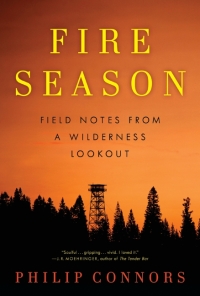The Sweetness of Tears by Nafisa Haji
 Wednesday, April 20, 2011 at 12:21PM
Wednesday, April 20, 2011 at 12:21PM 
Published by William Morrow on May 17, 2011
It may be inevitable that The Sweetness of Tears will be compared to The Kite Runner (indeed, the advertising on the back cover of my review copy invites that comparison) but the two novels have little in common. While The Kite Runner is a plot-driven novel that has strong characters, The Sweetness of Tears is a character-driven novel that is structured as a series of interwoven life-stories. They are, for the most part, stories of sacrifice and broken families, interesting and sometimes touching but not quite compelling.
Raised as an evangelical Christian, Jo March has little use for Darwin, but her study of Mendel opens her eyes -- the brown eyes she could not have inherited from her blue-eyed parents. Two years later she meets her biological father: Sadiq Mubarak. Point of view shifts to Mubarak as he recalls his childhood in Karachi, where his mother taught him that tears are sweet when they are born of love and shed for others, but "bitter when we cry selfishly for ourselves," when sorrow turns to anger. While still young, Sadiq is taken from his mother and learns to live a privileged life with his wealthy grandfather -- a spoiled existence that leads to trouble and, at the age of fifteen, exile to America. The story shifts again and again: from his mother's point of view, we again see Sadiq being taken from his mother; from the point of view of Jo's mother Angela, we learn the unhappy circumstances that followed Jo's conception. Other storylines take us to Guantanamo after 9/11 (where Jo is an interpreter) and to Iraq, where Jo makes a pilgrimage after her brother returns home, damaged by his American military service there.
The Sweetness of Tears tries to be a tear-jerker. At least to me, the story seemed too contrived to work on an emotional level. The 9/11 connection is forced; it could have made a fine story in its own right but Nafisa Haji doesn't make it feel real, and it's ultimately overshadowed by tragedies that befall other characters. Jo's visit to Iraq, and what she hoped to accomplish there, seemed particularly artificial. The most effective story is that of Sadiq's separation from his mother. Although Jo is more central to the novel, her experiences didn't resonate with me. Finally, all the storylines tie together a little too neatly at the end.
While the novel is reasonably well-written, Haji is addicted to sentence fragments. Some readers might appreciate the resulting "punchy" style; I found if a little annoying. Moreover, the characters all speak in the same voice and their dialog, too, is heavily laden with sentence fragments.
On a positive note, Haji uses her characters to illustrate worthwhile concepts: the contrast between open-minded faith and closed-minded belief; the need to confess ignorance of other cultures in order to learn from them; the difficulties of women whose rights are suppressed by men wielding religious law. At times, Haji becomes a bit preachy, resorting to lectures via dialog that don't necessarily advance the story. Haji nonetheless teaches useful lessons, particularly about the need to bridge differences: between cultures, between religious beliefs (Sunni and Shia, Christian and Muslim), between rich and poor, between genders.
The Sweetness of Tears is a flawed novel, but it's a quick read and it has something to say, and at the end I liked it despite its flaws. I guardedly recommend it for those reasons.
RECOMMENDED



